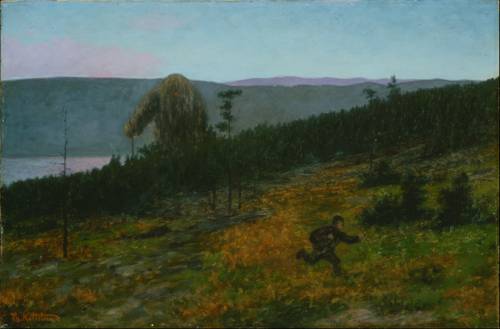
FAQ About The Influence of Scandinavian Folk Tales in Popular Media

What are some common themes in Scandinavian folk tales?
Scandinavian folk tales frequently explore themes of nature, bravery, and the supernatural. They often feature elements like mythical creatures, magical transformations, and heroic journeys. Nature often plays a central role, reflecting the landscapes of the region, and tales frequently highlight moral lessons or the consequences of human actions.

How have Scandinavian folk tales influenced modern films?
Scandinavian folk tales have had a significant impact on modern films, providing rich narrative material and inspiration for movies. The themes of magical realism, deep forests, and mythical creatures are evident in films like Trollhunter and Frozen. These tales offer unique storytelling elements that contribute to the global appeal of these films.

Can you name a popular video game influenced by Scandinavian folklore?
The video game God of War (2018) is a prominent example that draws heavily from Norse mythology, which is a subset of Scandinavian folklore. The game incorporates characters like Odin and Thor, and explores themes and events from Norse myths, providing an immersive experience that resonates with fans of these ancient stories.

What aspects of Scandinavian aesthetics are seen in global media?
Scandinavian aesthetics in global media often feature minimalistic and nature-inspired designs. For example, the setting of snow-covered landscapes and dark, mystical forests frequently appear. Film and game designers often use these aesthetics to evoke a sense of mystery, wonder, and the harsh but beautiful beauty of Northern Europe.

What role do mythical creatures play in Scandinavian folk tales?
Mythical creatures such as trolls, giants, and elves are central to Scandinavian folk tales. These beings often serve as both antagonists and helpers in stories, challenging or assisting human protagonists in various adventures. Such creatures often embody elements of nature and reflect the mystical aspects of the folklore.

How do Scandinavian folk tales differ from other European folk tales?
Scandinavian folk tales often put a stronger emphasis on the relationship between humans and nature compared to other European folk tales. They frequently involve harsh natural environments and incorporate unique mythical creatures specific to the region, such as trolls and Nisse. Their moral lessons often reflect communal values and interactions with nature.

What are some examples of Scandinavian folk tales?
Some well-known Scandinavian folk tales include The Three Billy Goats Gruff, where cleverness outwits a troll, and East of the Sun and West of the Moon, a romantic adventure similar to Beauty and the Beast. These stories have been passed down through generations and continue to inspire modern adaptations.

How do Scandinavian folk tales inspire narrative structures in storytelling?
Scandinavian folk tales often feature heroes undertaking epic journeys, facing moral dilemmas, and encountering magical elements, which inspire similar narrative structures in contemporary stories. This influence can be seen in quest-driven plots where characters must overcome supernatural challenges to achieve personal growth or heroism.

In what ways have literary works been influenced by Scandinavian folklore?
Many literary works incorporate themes, characters, and settings from Scandinavian folklore. Authors such as J.R.R. Tolkien have drawn inspiration from Norse mythology, evident in works like The Lord of the Rings. These influences manifest in fantastical elements, epic battles, and complex moral and philosophical themes.

How is Norse mythology related to Scandinavian folk tales?
Norse mythology is an integral part of Scandinavian folk tales, providing a rich source of characters, stories, and themes. While not all folk tales are directly from Norse myths, they often share common cultural and narrative elements such as gods, mythical creatures, and cosmologies that deeply influence storytelling traditions in the region.

What impact has Scandinavian folklore had on global popular culture?
Scandinavian folklore has significantly influenced global popular culture, inspiring a range of media such as films, literature, and music. Its mystical elements and themes of exploration and nature resonate with audiences worldwide, leading to adaptations and reinterpretations that introduce these stories to new generations.

Are there any misconceptions about Scandinavian folk tales?
A common misconception is that all Scandinavian folk tales are dark or sinister. While many involve dramatic or eerie elements, there are also tales with humor, romance, and moral lessons focused on positivity. It's also mistakenly thought that these stories are only about Nordic gods, whereas many focus on everyday life and societal values.

How do the elements of Scandinavian folk tales enhance video game narratives?
Games inspired by Scandinavian folk tales often incorporate lore, characters, and settings from these stories to create immersive, atmospheric worlds. Elements like mythical creatures and hero’s journeys enhance gameplay by providing depth and cultural richness, which appeals to players seeking unique narratives beyond conventional fantasy lore.

Which elements of Scandinavian folk tales have been most popular in literature?
The mystical elements, such as trolls, elves, and enchanted forests, are among the most popular borrowed into literature. Themes of adventure, survival, and human resilience in the face of natural challenges are also frequently explored, lending themselves to timeless storytelling widely appreciated in literary communities.

What are some cultural reasons for the popularity of Scandinavian folk tales in media?
The rich, mystical elements of Scandinavian folk tales, combined with their deep connection to nature and regional history, offer a unique appeal. Additionally, their themes of exploration, moral lessons, and interactions with magical creatures resonate cross-culturally, facilitating their adaptation into various mediums.

Are Scandinavian folk tales used in mainstream animation?
Yes, Scandinavian folk tales have been adapted into mainstream animation. A notable example is Disney’s Frozen, which draws from diverse elements of these tales, particularly the majestic wintry settings and mythical aesthetics, to build its magical narrative while appealing to a wide audience.

What influence do societal values in Scandinavian folk tales have on contemporary storytelling?
Societal values such as community, resilience, and respect for nature prevalent in Scandinavian folk tales often translate into contemporary storytelling. These tales emphasize human virtues and relationships, promoting narratives that highlight teamwork, perseverance, and moral integrity, which resonate well in current global narratives.

How do Scandinavian folk tales reflect the landscapes of the region?
Scandinavian folk tales intricately weave natural landscapes into their narratives, with vast forests, mountains, and fjords often forming backdrops for fantastical events. The setting not only enhances the storyline but also reflects the region’s geography, emphasizing the mystique and sublimity of Northern Europe's natural environment.

Why are mythical beings from Scandinavian folklore often included in modern fantasy worlds?
Mythical beings like trolls and elves from Scandinavian folklore are often included in modern fantasy worlds due to their rich narrative potential and exotic allure. These characters embody mystery and enchantment that enhance fantasy settings, providing opportunities for complex storylines and cultural depth that appeal to a wide audience.

How do Scandinavian folk tales incorporate moral lessons?
Scandinavian folk tales often embed moral lessons within their adventures, teaching about virtues like honesty, courage, and respect for nature. These lessons are subtly woven into the plot, demonstrating the consequences of actions and encouraging readers to reflect on moral and ethical issues in a culturally relevant context.

Create new FAQ page, write FAQs and publish for your clients, friends, colleagues, visitors, students, customers, guests, neighbors, or yourself.
Create Your Own FAQ Page now